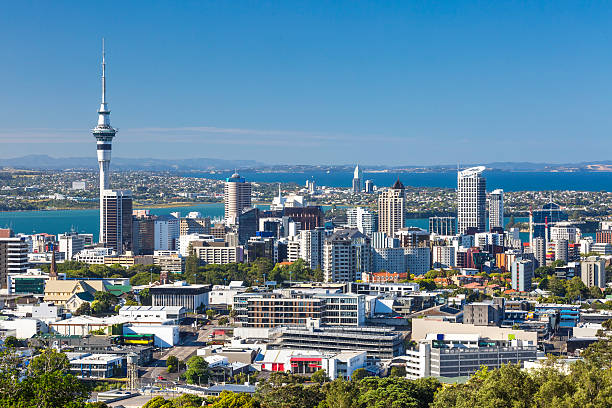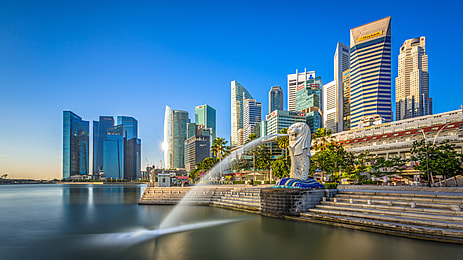Turkey Travel Guide: All you need to know to visit Turkey in 2025
Welcome to Turkey
Turkey, formally known as the Republic of Turkey, is a transcontinental country in Southeast Europe and Southwest Asia. It is bordered by Greece and Bulgaria to the northwest, Georgia to the northeast, Armenia, Azerbaijan, and Iran to the east, Iraq and Syria to the southeast end, and the Mediterranean Sea to its south and west. With a population of over 83 million, Turkey is the world’s 18th most populous country.
Geography: Turkey has a diverse geography, with mountains, forests, plains, and a coastline. Its highest peak is Mount Ararat, which stands at 16,854 feet (5,137 meters) and is located on the border with Armenia. Turkey has two main mountain ranges, Pontic Mountains in the northern part and the Taurus Mountains in the south. Turkey is also home to several rivers, including the Tigris and Euphrates, and the largest lake is Lake Van. The climate varies across the regions, with the coastal areas having a Mediterranean climate, the central plateau having a more continental climate, and the eastern part having a harsher climate. The nation is also located in a region susceptible to earthquakes due to its proximity to several tectonic plates.
Climate: The climate in Turkey varies depending on the region. The coastal areas have a Mediterranean climate with hot summers and mild winters, while the central plateau has a more continental climate with hot summers and cold winters. The eastern region of Turkey has harsher conditions, with long, cold winters and short summers.
History: Turkey has a rich history dating back to ancient times. Various peoples, including the Hittites, Assyrians, Greeks, Romans, and Ottomans inhabited the region. The Ottoman Empire ruled over much of the region for centuries until it dissolved after World War I, leading to the establishment of the modern Republic of Turkey in 1923.
Culture: Turkey’s rich and diverse culture blends influences from Europe, Asia, and the Middle East. Turkish music, art, and architecture are highly valued, with traditional forms of music, such as Turkish folk music and classical Ottoman music remaining popular. Turkish cuisine is also highly regarded and is known for dishes such as kebab, baklava, and Turkish delight. The country is home to several historical sites, including the Hagia Sophia and Topkapi Palace in Istanbul, which reflect its rich history and architectural heritage. Turkish literature is also highly regarded, with works by famous authors such as Orhan Pamuk and Elif Shafak gaining international recognition. The country has a strong tradition of hospitality and is known for its warm and welcoming culture.
Religion: Most of Turkey’s population is Muslim, with Sunni Islam as the predominant branch. Turkey has a rich Islamic heritage, with several important historical sites in Istanbul, such as the Blue Mosque and the Suleymaniye Mosque. In addition to Islam, there are also small Christian and Jewish communities in Turkey, although these groups comprise a small minority of the population. The Turkish constitution guarantees freedom of religion and belief, and the government respects religious freedom.
Language: The formal language of Turkey is Turkish, which is spoken by many of the population. Kurdish, Arabic, and Zaza are also spoken in some regions.
Economy: Turkey has a mixed economy that is rapidly growing and developing. The country is a member of the G20 and has the world’s 18th-largest economy. Turkey’s economy is diversified, with significant industrial, service, and agricultural contributions. The country is also strategically located, serving as a bridge between Europe and Asia, which has made it a key player in international trade. Major exports from Turkey include textiles, vehicles, machinery, and food products, while the country also has a strong tourism industry. Despite the recent economic challenges, Turkey has implemented several economic reforms in recent years to attract foreign investment and promote sustainable economic growth.
Tourism: Turkey is a popular destination for its rich history, beautiful landscapes, and unique culture. The country is abode to several UNESCO World Heritage sites, like Ephesus’s ancient city and Istanbul’s historical city, attracting millions of visitors annually. Other popular tourist attractions in Turkey include Antalya’s beautiful beaches, Cappadocia’s otherworldly landscapes, and Pamukkale’s thermal springs. The country is also known for its delicious cuisine, vibrant bazaars, and traditional handicrafts, such as carpets and ceramics. With a wide range of accommodation options, from luxurious hotels to budget-friendly guesthouses, Turkey is a popular destination for tourists worldwide.
Politics: Turkey is a presidential republic with a multi-party system. The president heads the nation and government, and the legislative branch is the Grand National Assembly of Turkey.
Infrastructure: Turkey has a modern infrastructure with a well-developed transportation system. The country has a network of highways, railways, and airports, and Istanbul is home to one of the biggest airfields in the world, the Istanbul Airport. Turkey also has several major ports and is strategically located between Europe and Asia, making it an important hub for international trade.
Related Articles

5 min read
New Zealand Introduces Key Changes to Post Study Work Visa : What You Should Know
According to the government, this change will provide students with greater flexibility in their academic choices while ensuring they remain eligible to work. For many students, studying abroad is a
Read More
5 min read
The Singapore visa processing time for Indian citizens
Singapore is a small island located in the Malay Peninsula in Southeast Asia. It is one of the most economically developed countries in the world. Singapore is a fantastic place
Read More
5 min read
How Much Does an Australia Trip Cost from India?
If you are planning a trip from India to Australia, you must follow some of the points. that are : Planning Budget Traveling date and time To which place you
Read MoreIndians need a visa to travel to Turkey. They can apply for an e-Visa online or a visa at the Turkish embassy in India.
Indians can stay in Turkey for up to 30 days with a tourist visa.
An e-Visa is an electronic visa that enables travellers to apply for a visa online and receive it via email. Indians can apply for an e-Visa for Turkey online by filling out an application form and paying the fee online.
Indians can extend their stay in Turkey beyond the 30-day limit by applying for a residence permit at the local immigration office.
Some popular tourist destinations in Turkey for Indians include Istanbul, Cappadocia, Antalya, Bodrum, and Pamukkale.
Turkey travel checklist
- Valid Passport
- Valid Visa
- Flight tickets: Book your flight tickets early for the best deals.
- Accommodation: Book your accommodation in advance, especially if travelling during peak season.
- Currency: Exchange your currency for Turkish Lira, or withdraw money from an ATM in Turkey.
- Power adapter: Bring a power adapter to charge your electronic devices, as Turkey uses European-style two-pin plugs.
- Clothing: Includes comfortable walking shoes, a hat, sunglasses, and sunscreen.
- Language: A few basic Turkish phrases, such as English, may not be widely spoken in some areas.
- Maps and guidebooks.
- Emergency contacts: include the nearest embassy, local emergency services, and your accommodation details.
